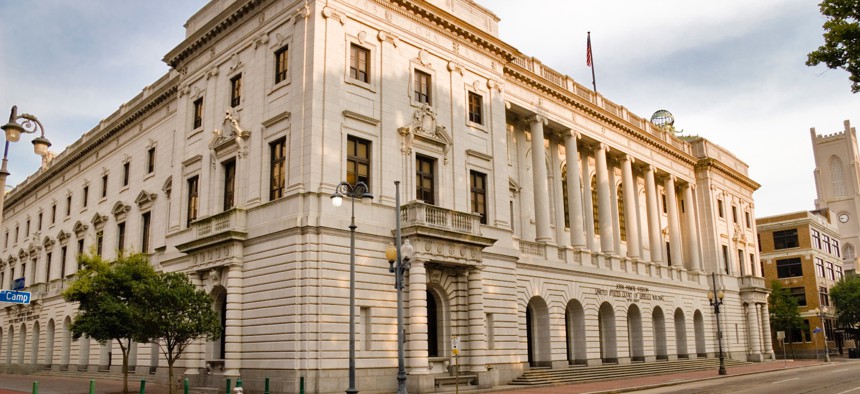Court ban on agency contact with social media lacks evidence, White House argues

The White House is asking the U.S. Court of Appeals for the Fifth Circuit in New Orleans to overturn an injunction that prevents federal officials from contact with social media companies. ssucsy / Getty Images
The contact injunction is on pause pending an appeals court ruling.
The Biden administration filed an appellate brief on Tuesday looking to overturn a district court injunction blocking officials across multiple agencies from routine contact with social media companies except on urgent or emergency matters.
The original case — brought by Republican officials in Missouri and Louisiana, as well as several individual plaintiffs — alleges that the Biden administration used its authority to coerce social media networks, most prominently Facebook and Twitter, into suppressing speech about election security, COVID-19 vaccine safety and other matters.
The district court judge in the case issued a broad injunction barring most contacts between federal officials and social media companies in early July. That injunction was paused by a panel of appeals court judges on July 14. The Biden administration is pressing the U.S. Court of Appeals for the Fifth Circuit to overturn the injunction in its entirety.
"Plaintiffs do not marshal record evidence of even a single instance in which a government official threatened a platform with prosecution, a regulatory sanction or any other legal consequence if it refused to remove content," administration attorneys wrote in Tuesday's brief.
The administration is arguing that the plaintiffs and the district court judge can't identify any "concrete and specific threats" made by government officials against social media companies to compel them to remove content.
A group of Republican lawmakers, led by House Judiciary Chairman Jim Jordan, R-Ohio, are arguing exactly the opposite. In an amicus brief in the case filed on Monday, they said that "the executive branch of the federal government has engaged in a sustained effort to coerce private parties into censoring speech on matters of public concern."
The Republican brief also argues that the Biden administration leaned on quasi-governmental or government-funded organizations as cut-outs through which content takedown requests could be laundered.
Specifically, the brief alleges that the Cybersecurity and Infrastructure Security Agency tapped the Multi-State Information Sharing and Analysis Center and the Elections Infrastructure Information Sharing and Analysis Center to request social media firms take down or throttle content related to the security of the 2020 election.
The brief includes about 100 pages of exhibits, including excerpts from emails and transcribed interviews, gleaned from prep for a July hearing of the Judiciary Committee's new Subcommittee on Weaponization of the Federal Government. That hearing featured testimony from notable anti-vaccine activist and presidential candidate Robert F. Kennedy Jr., the Louisiana attorney general who is helping to bring the case against the administration and Emma-Jo Morris, the politics editor at Breitbart News.
Rep. Gerry Connolly, D-Va., said at that hearing that efforts by government officials to flag COVID-19 misinformation for social networks "was not Big Brother government trying to exercise its will on an innocent population — it was public health measures to protect lives."






